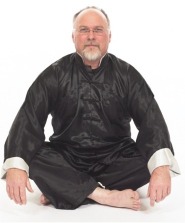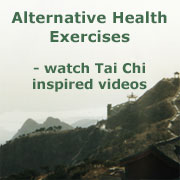Well there are many factors and to begin, as I understand it, during aging cellular replication slows down around 50 or so, that is the number of stem cells in our body start to run down. The 115 year old woman who died a while ago was found to have only two types of stem cell left in her bloodstream – greatly down on a younger person.
Then the cells that do not replicate do not die, they enter a lower energy state of senescence where they are not so efficient or effective at converting the energy of blood sugar work. Consequently we become weaker cell by cell, muscle fibre by fibre. The same of course happens with our internal organs which consequently become likewise as capable!
Now perhaps many things including Tai Chi, exercise in general, good diet, a low stress lifestyle etc. can prolong that period of decline extending the onset of senescence some years, but ultimately, unless we die by trauma, then we all die the same way, by gradual aging.
The difference is that Tai Chi offers a way of developing skill in body usage – Tai Chi people age and die like everybody else – they have simply learned how to deal with it better than most. They learn how to manage their body and if you have not learned Tai Chi by age 50 then this is when you probably still have enough energy left to learn.
The connected movement of Tai Chi allows the whole body to act together, supporting and enhancing the weaker parts. Like a convoy protecting and supporting the slower weaker ship. We need to get the whole convoy home – the whole body – with as little damage or loss as possible.
So, like a team who organise themselves so that the strong support the weak and the quick cover for the slow, the clever for the not so clever – of which each individual will exhibit a range of attributes that need to be meshed together so that the whole is greater than the sum of the parts and ensuring that the weakest link does not fail.
As they grow old Tai Chi people learn to do this with their bodies, minds and emotions so that by developing relaxed integrated movement, the body organs and consequently the cells of which they are comprised are less stressed and for any action the whole body is brought to bear – thus compensating for developing weakness.






